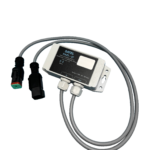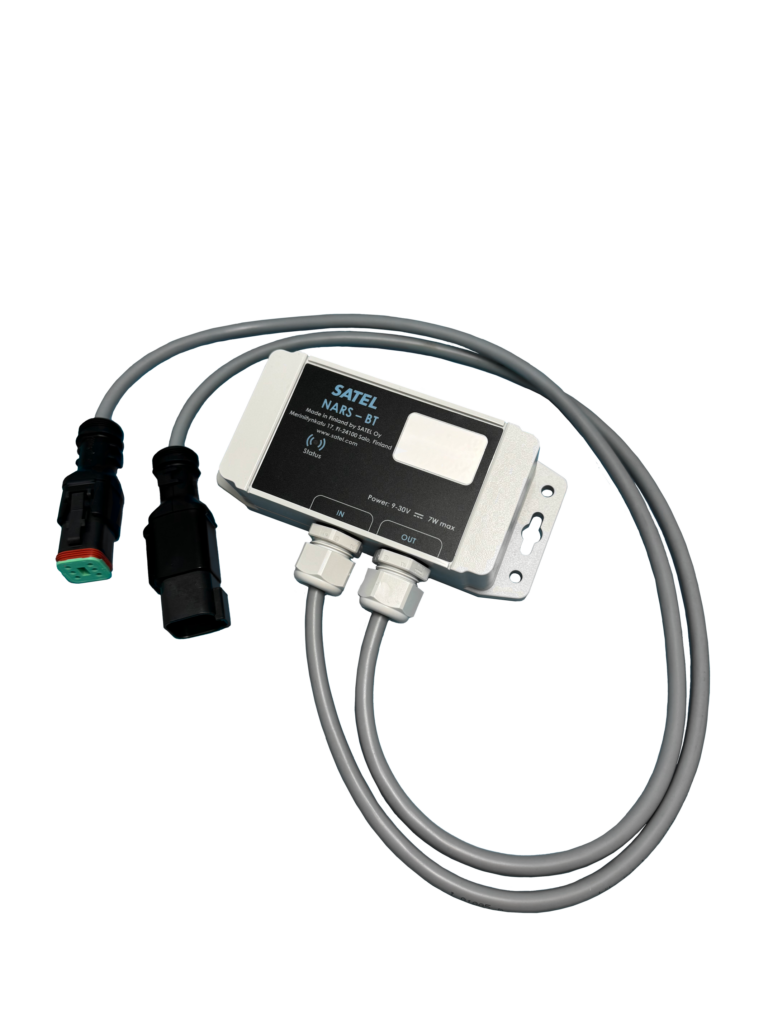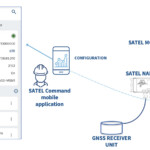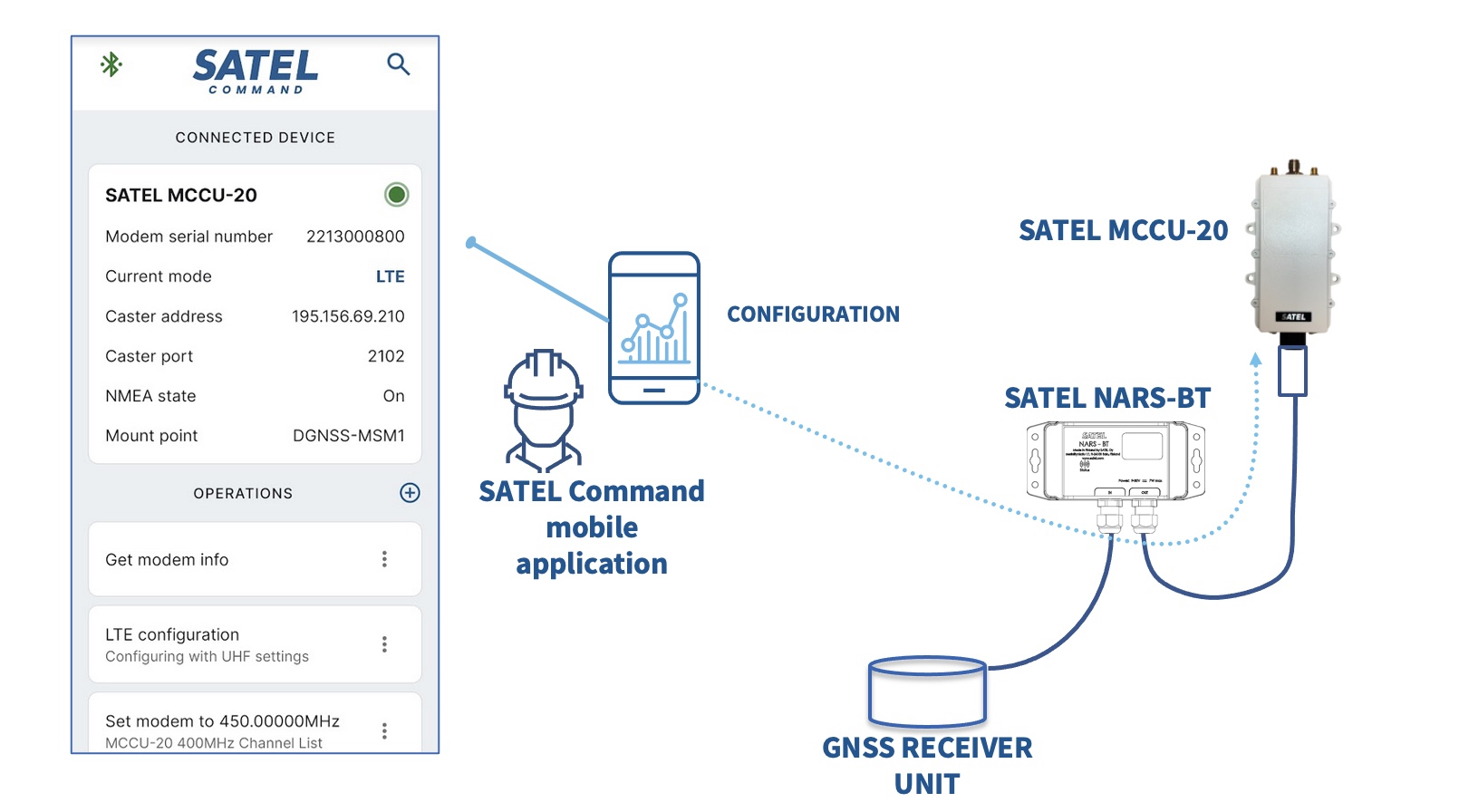The SATEL MCCU-20 is a unique dual-technology RTK transceiver for receiving the GNSS RTK correction data to a moving vehicle with UHF radio based RTK or NTRIP over LTE. The RTK correction data is forwarded over RS-232 serial communication to machine control system.
Connectivity in harsh environments
The MCCU (Mission-Critical Connectivity Unit) solutions are perfect for mission-critical operations. They are used globally in machine control systems for construction and smart agriculture systems such as precision farming. SATEL solutions are also widely used in surveying, mining, forestry, USV and UAV applications.
The SATEL MCCU-20 LTE / UHF has IP67 and IP69K classification and it withstands vibration and shock. It is based on field proven mechanics, and all the electrical connections are equipped with surge and ESD (Electrostatic Discharge) protection.
Easy integration
The machine and vehicle manufacturers and machine control system providers can integrate SATEL MCCU-20 LTE / UHF to their offering without knowing what kind of technology is available in the operating area. The vehicle can be operated under varying connectivity environments.
To ease up the SATEL MCCU-20 configuration SATEL offers:
– SATEL NARS-BT Bluetooth device together with SATEL Command application (for iOS and Android)
Mission-critical connectivity
The SATEL MCCU-20 is a dual-technology RTK transceiver for receiving RTCM correction data either with UHF radio from local base station or from internet with LTE interface by using NTRIP protocol.
SATEL MCCU-20 has built-in NTRIP client and RS-232 interface, the current GNSS system capabilities can be upgraded to have always the possibility to receive RTCM corrections, no matter whether working in rural areas where no cellular coverage is present, or receiving RTCM corrections from NTRIP caster services when operating in areas where cellular coverage is available.
SATEL MCCU-20 is simple, and cost-effective all-in-one RTCM solution to reach centimeter level accuracy!
Available products and product codes:
- YT0200 SATEL MCCU-20 EU, with encryption support, with eSIM
- YT0205 SATEL MCCU-20 EU, w/o encryption support, with eSIM
- YT0210 SATEL MCCU-20 US/CA, with encryption support, with eSIM
- YT0225 SATEL MCCU-20 BR, with encryption support, with eSIM
Type approvals for main markets are to be carried out.
CONTACT USIn the EU the product falls under the scope of the radio equipment directive
2014/53/EU (RED). In the USA and Canada, the relevant FCC / ISED parts are fulfilled.
| Free fall | ISO 16750-3:2012 IEC 60068-2-31:2008 |
| Mechanical shock (half sine) | ISO 16750-3:2012 IEC 60068-2-27:2008 |
| Vibration (random) | ISO 16750-3:2012 IEC 60068-2-64:2008 |
| Ingress Protection | IPX9K IEC 20653:2013 IP67 IEC 60529:2013 |
| Safety | IEC 62368-1:2018 Edition 3.0 |
| EMC | EN 301 489-1 v.2.2.3, -3 v.2.1.1, EN 301 489-52 v1.2.1, -19 v2.1.1 EN 55035:2017 + A11:2020 |
| Radiated emissions | EN 55032:2015 + A11:2020 |
| Electrostatic discharge | IEC 61000-4-2 Level 4: 4 kV contact, 8 kV air discharge |
| Radiated filed immunity | IEC 61000-4-3 (2010-04) IEC 61000-4-3:2020 Level 20 V/m |
| Polarity | Reverse polarity protection |
| Temperature and humidity (cyclic) | ISO 16750-4:2006 IEC 60068-2-38:2009 |
Integrated global roaming eSIM and traditional SIM card slot for local operator’s subscription.
| Two communication modules | LTE: (NTRIP application, NMEA position upstream) UHF: 410 …475 / 902 … 928 MHz radio (RTK Receiver) |
| Serial interface | RS-232 (TD, RD lines) |
| Serial data speed | 4800 – 460800 bps |
| Operating voltage | +9 … +30 VDC (-15% / +20% ) |
| Operating temperature | –30°C to +70°C (operational) |
| Interface connector | Deutsch DT04-6P-CL09 |
| Antenna connector | 50 Ohm, 2 x SMA (LTE) / 1 x TNC (UHF) |
| Power consumption | Typ. 2.4 W (NTRIP receive) / Typ. <1 W (RTK receive) |
| Housing | Shielded / bare PCB inside a metal housing |
| Size / Weight | 174 mm x 95 mm x 47 mm / 520 g |
| IP classification | IP67 / IP69K |
| Cellular bands | GSM: B2/B3/B5/B8 WCDMA: B1/B2/B4/B5/B6/B8/B19 LTE-FDD: B1/B2/B3/B4/B5/B7/B8/B12/B13/B18/B19/B20/B26/B28 LTE-TDD: B38/B39/B40/B41 |












